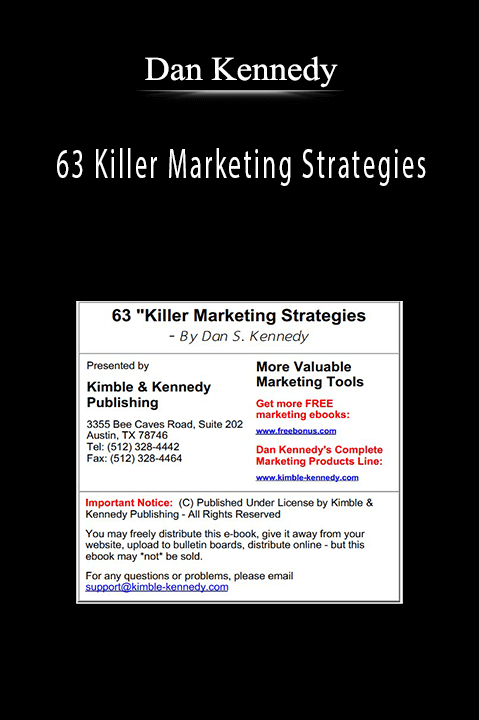Subtotal: $35.00
Wealth Triggers – Ramit Sethi
Original price was: $297.00.$36.00Current price is: $36.00.
Digital Download: Wealth Triggers – Ramit Sethi
You will have access to the digital downloads in your order email.
You will also be able to access your downloads from your account dashboard.
Short Description:
These are the same thoughts we have scrolling through Instagram in bed. We’re worn out from another rat race day when more beach pics from our friend’s Bahamas getaway pop up.
- Description
- Reviews (8)
Description
Description
Wealth Triggers – Ramit Sethi
NYT bestselling author reveals…
Taboo secrets of the 1%
What separates the wealthy from everyone else?
Money Psychology: How do they see mental roadblocks and financial opportunities that others overlook?
Spending Habits: Why would anyone spend $40 on hand soap or fly business class? (Hint: It’s not just to show off.) Read on…
Dream Lifestyles: How do they design a life of possibility, not scarcity? (If you waved a magic wand, where would you spend your money?)


Hi, I’m Ramit Sethi, the New York Times best-selling author and CEO of I Will Teach You to Be Rich.
“I’m repulsed by that kind of spending”
“I’ll be honest – years ago I would have been repulsed by extravagant spending.But after reading your emails over the years, I realize that if the expensive item or experience is important to people, they should be able to spend their money on it. Of course, while being careful with the rest of your money, like you say in your book.[Now I realize] it’s cool to see what people spend their money on.”
“Earlier in my life I would have been repulsed because we didn’t have much money growing up, and we looked upon extravagant spending as a waste.My beliefs have changed over the years (and are still evolving), where I much more understand why people spend on things they like/love.”

There is true love in my eyes
-
Flying first class? What a waste … we’re all going to the same place at the same time.
-
Hiring a nanny? Are you too busy to parent your child?
-
Staying at a luxury resort? Such a waste of money. I prefer to stay at some place more authentic, not holed up in some 5-star hotel.
-
Getting an assistant? Why do you need an assistant? Are you too good to go to the grocery store like everyone else?

How the wealthy think
The handicap I didn’t know I had
- Paying for a personal trainer? “Talk about a rip-off.”
- Hiring someone to mow your lawn? “That’s what the kids are supposed to do. They don’t have anything better to do, right?”
- Dining out? On the rare times we went on vacation (road trip, to see relatives), my mom would pack sack lunches. Eating out wasn’t even considered.
- “Oh, I’ll never spend money on business class … that’s dumb”
- “I would never eat at those kinds of restaurants … you’re just paying for ambiance there”
- “Dry cleaning? … That’s just a tax on people who buy expensive clothes”


Can money buy happiness?
Which toxic money beliefs
“Money causes stress.”
“The rich are corrupt. Money is evil.”
“Money can’t buy happiness.”
“I don’t deserve
- They have a final interview to land their dream job and secure a big raise … but instead of preparing the night before, they get drunk. Then botch the interview the next day.
- They stay in a low-paying job that they’re much too talented for … for years.
- Or my favorite: They win the lottery and blow all of it within a year. (Please don’t do this.)
“I can’t win the game so
The WORST part of all!
- We make more money today than we did 5 or 10 years ago — but we’re still fighting the same stress and fears about money. Why can’t we get ahead?
-
We see people earn more than us who, frankly, are less smart and less talented than we are. Sure, some are lucky and some have family money and some are just in debt up to their eyeballs — but not everyone. What are we missing?
- We follow the best advice we can find — “get a good job, hustle, save more” — but we always feel like we’re just treading water … if not slowly sinking.
Introducing…
Unlock your financial potential and live your Rich Life
- This is specific — we include exact concepts, examples, and phrases you can use right now.
- This is rapid — a 21-day course with new material that you can apply instantly. Take it at your own pace and revisit it whenever you want.
- And this is practical — if you’ve already tried the treadmill of random hacks and “trying harder” and you want to go beyond symptoms to focus on what truly works, Wealth Triggers gives you the precise, actionable steps to build these inner mindsets into your everyday life.
Digital Download Wealth Triggers – Ramit Sethi at coursebing.shop Now!
Sale Page: https://buy.iwillteachyoutoberich.com/wealth-triggers/
Archive: http://web.archive.org/web/20200225014241/https://buy.iwillteachyoutoberich.com/wealth-triggers/








![[NEW] Youtube Affiliate Marketing Income Exploder - Jordan Mackey](https://coursebing.com/wp-content/uploads/2021/12/NEW-Youtube-Affiliate-Marketing-Income-Exploder-Jordan-Mackey-300x451.png)








8 reviews for Wealth Triggers – Ramit Sethi
There are no reviews yet.